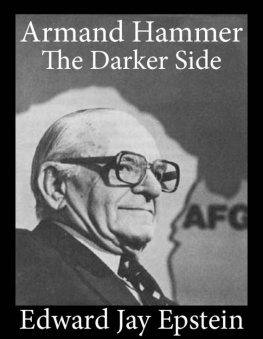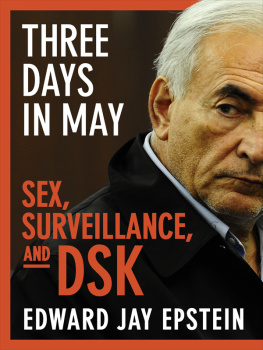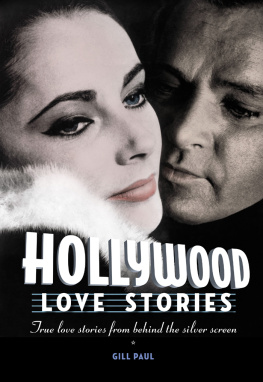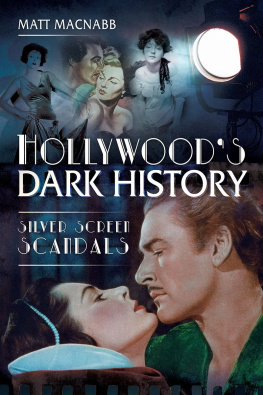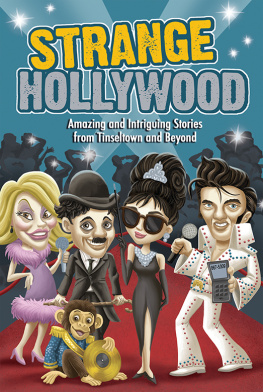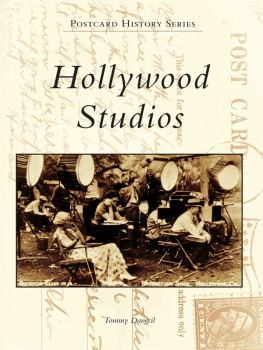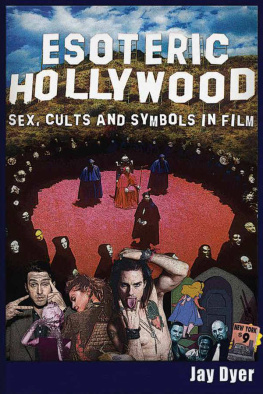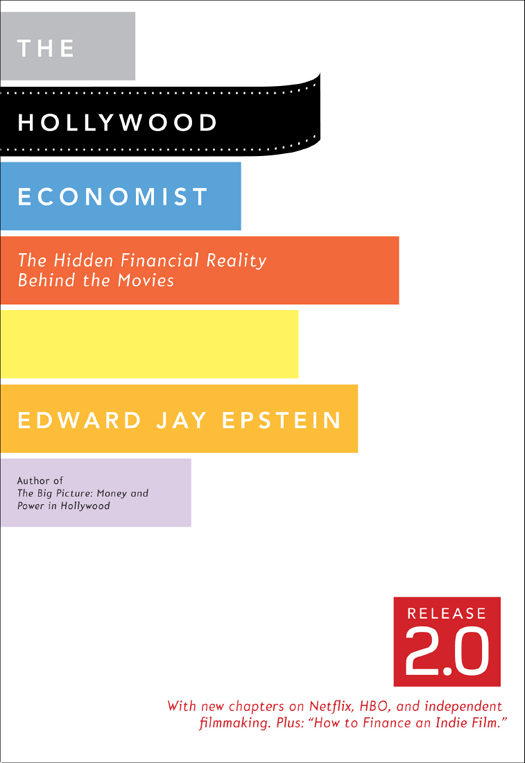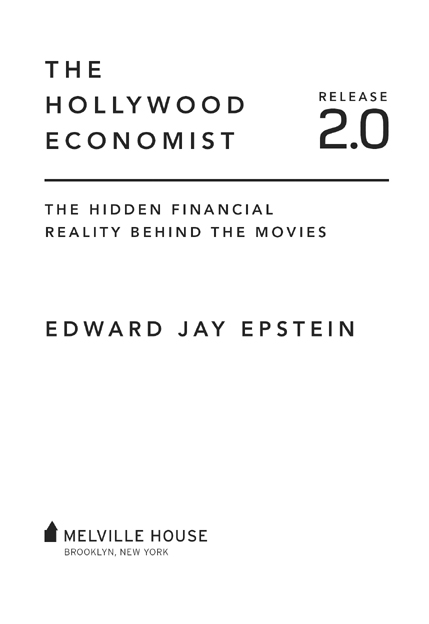PRAISE FORTHE HOLLYWOOD ECONOMIST

[A] terrific job. Theres fun to be had in knowing specifics, and Epstein offers plenty.
ENTERTAINMENT WEEKLY
The mysteries of modern-day film financing the seamy underbelly of Hollywood spreadsheets.
THE WALL STREET JOURNAL
PRAISE FOR EDWARD JAY EPSTEINSTHE BIG PICTURE

A rich adventure that will change the way you look at movies.
BUSINESSWEEK
Edward Jay Epstein is here to tell us that when it comes to Hollywood these days, weve got it all wrong.
THE WASHINGTON POST BOOK WORLD
One of the virtues of The Big Picture is Mr. Epsteins astonishing access to numbers that movie studios go to great lengths to keep secret A groundbreaking work that explains the inner workings of the game.
THE WALL STREET JOURNAL
Hollywood has needed one of these for a long timea users manual. This one could not be more complete. [Grade] A.
ENTERTAINMENT WEEKLY
In his adroit charting of the confidence flow between the various entities and eras Mr. Epstein kicks up a lot of little surprises Edward Jay Epstein is quite good.
LARRY McMURTRY, THE NEW YORK REVIEW OF BOOKS
[A] valuable education for those seeking to enter and understand the entertainment industry. Factually impressive.
JOEL HIRSCHHORN, VARIETY
Epstein peels away the Hollywood facade and gives a nuts-and-bolts view of how the six entertainment empiresViacom, Fox, NBC/Universal, Time Warner, Sony, and Disneycreate and distribute intellectual property today. [He] presents a fascinating look at the unbelievable efforts that must be coordinated to produce a film.
BOOKLIST
In vivid detail, he describes the current process of how a film is made, from the initial pitch to last-minute digital editing. Theres a refreshing absence of moral grandstanding in Epsteins work. With no apparent ax to grind, he simply and comprehensively presents the industry as it is: the nuts and bolts, the perks and pitfalls and the staggering fortunes that some in the business walk away with. This is the new indispensable text for anyone interested in how Hollywood works.
PUBLISHERS WEEKLY
[A] meticulously reported new book.
THE BALTIMORE SUN
What one learns from these investigations is that the deepest, darkest secrets in Tinseltown have nothing to do with sex, drugs, blasphemy, or politics, and everything to do with money.
THE WEEKLY STANDARD
Edward Jay Epstein blew the lid off Hollywoods dirty little open secret.
THE WASHINGTON TIMES
Compelling. [Epstein] demystifies the contemporary process of film-making in the digital age.
THE PITTSBURGH POST-GAZETTE
ALSO BY EDWARD JAY EPSTEIN
Inquest: The Warren Commission and the Establishment of Truth
Counterplot: Garrison vs. the United States
News from Nowhere: Television and the News
Between Fact and Fiction: The Problem of Journalism
Agency of Fear: Opiates and Political Power in America
Cartel: A Novel
Legend: The Secret World of Lee Harvey Oswald
The Rise and Fall of Diamonds: The Shattering of a Brilliant Illusion
Who Owns the Corporation?: Management vs. Shareholders
Deception: The Invisible War Between the KGB and the CIA
The Assassination Chronicles: Inquest, Counterplot, and Legend
Dossier: The Secret History of Armand Hammer
The Big Picture: Money and Power in Hollywood
THE HOLLYWOOD ECONOMIST RELEASE 2.0
2010, 2012 E.J.E. Publications, Ltd., Inc.
All rights reserved
First Melville House printing: January 2012
Melville House Publishing
145 Plymouth Street
Brooklyn, NY 11201
www.mhpbooks.com
eISBN: 978-1-61219-051-8
Parts of this book appeared in earlier form in The New Yorker, Slate, The Wall Street Journal, the Financial Times, Gawker, and The Wrap.
A catalog record for this book is available from the Library of Congress
v3.1
For Susana Duncan
CONTENTS
INTRODUCTION
Why We Dont Understand Hollywood
PART 1
The Popcorn Economy
PART II
Star Culture
PART III
Hollywoods Invisible Money Machine
PART IV
Hollywood Politics
PART V
Unoriginal Sin
PART VI
Indie Film
PART VII
The Politics of Streaming
EPILOGUE
Hollywood: The Movie
INTRODUCTION
WHY WE DONT UNDERSTAND HOLLYWOOD
There was a time, around the middle of the twentieth century, when the box office numbers that were reported in newspapers were relevant to the fortunes of Hollywood: studios owned the major theater chains and made virtually all their profits from their theater ticket sales. This was a time before television sets became ubiquitous in American homes, and before movies could be made digital for DVDs and downloads.
Today, Hollywood studios are in a very different business: creating rights that can be licensed, sold, and leveraged over different platforms, including television, DVD, and video games. Box office sales no longer play nearly as important a role. And yet newspapers, as if unable to comprehend the change, continue to breathlessly report these numbers every week, often on their front pages. With few exceptions, this anachronistic ritual is what passes for reporting on the business of Hollywood.
To begin with, these numbers are misleading when used to describe what a film or studio earns. At best, they represent gross income from theater chains ticket sales. These chains eventually rebate about 50 percent of the sales to a distributor, which also deducts its outlay for prints and advertising (P&A). In 2007, the most recent year for which the studios have released their budget figures, P&A averaged about $40 million per titlemore than was typically received from American theaters for a film in that year. The distributor also deducts a distribution fee, usually between 15 and 33 percent of the total theater receipts. Therefore, no matter how well a movie appears to fare in the box office race reported by the media, it is usually in the red at that point.



